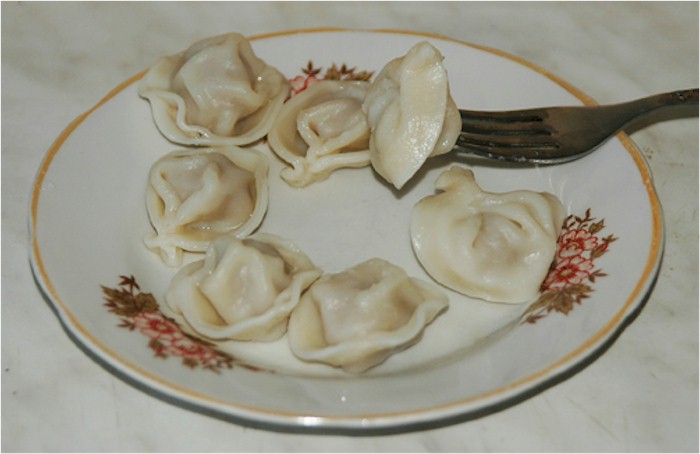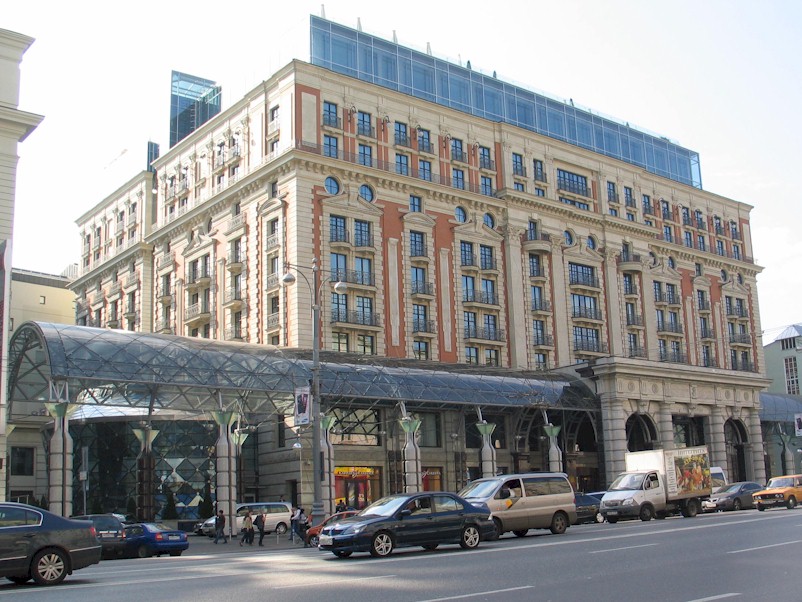Koroviev's Stunts
Bosoy
Nikanor Ivanovich Bosoy is chairman of the tenants' association of block 302 bis on Bolshaya Sadovaya. The quasi-official function of chairman of the tenants' association of a block attributed quite some power to the function holder. In the Soviet Union there was a permanent shortage of housing accomodation and the chairman was in an ideal position to take bribes in exchange for preferential treatment.
Босой [bosoy] means barefoot in Russian, which points to the rural origin of the character Nikanor Ivanovich Bosoy. Bulgakov had a low opinion of those «provincials who were being kicked upstairs».
In one of the earlier versions of the novel, Bosoy was called Nikodim Grigorevich Porot, of whom the first name would be a direct referral to Nikodemus, the author of the apocryphal gospel known as The Acts of Pilate.
Claims to the deceased's living space
The problem of housing in the Soviet Union is one of the recurring themes in the works of Bulgakov, not only in The Master and Margarita, but also, for example, in his novella Heart of a Dog and in many feuilletons, letters and diary excerpts.
Shortly after the Russian revolution, Lenin drafted a plan to expropriate and resettle private apartments, and conceived the idea of the communal apartment. Private ownership of houses was abolished in 1918. New laws came into effect governing who could live where, and they were applied by tenants associations headed by a chairman. Many of them were, like Nikanor Ivanovich Bosoy, uneducated, incompetent law-abiding folks who, despite their lack of competencies, had quite some power in their quasi-official function.
This situation made life quite uncertain. When an occupant was absent for six weeks, he could be deported. There have been cases of people who went traveling for a couple of weeks, and found that, upon their return, new residents had settled in their apartments. Quite often, these new residents had granted a «favour» to the chairman of the tenants association.
A very lively example of how it worked can be seen in the movie picture Doctor Zhivago (1965), directed by David Lean (1908-1991) and based on the famous novel by Boris Leonidovich Pasternak (1890-1960). When doctor Yuri Andreevich Zhivago returns to Moscow after the war, his mansion turns out to be suitable to house 13 families.
Of supernatural speed
The news of Berlioz's death spread with «a sort of supernatural speed». In chapter 1 Bulgakov described horn-rimmed glasses «of a supernatural size». Bulgakov makes many little jokes about the Soviet government’s habit to exaggerate, especially the own realisations.
Meat dumplings
In the English translation of Pevear and Volokhonsky is written «the description of the theft of some meat dumplings». In the original text is written пельменей [pelmeni]. Pelmeni are Russian, originally Siberian meat dumplings, sometimes called Siberian ravioli. They would be made in large quantities and frozen (originally outside) to be boiled later.

Delicious pelmeni
A little checkered jacket, a jockey's cap, and a pince-nez
Koroviev's costume here recalls that of the devil who appears to Ivan Fyodorovich Karamazov in The Brothers Karamazov written by Fyodor Michailovich Dostoevsky (1821-1881).
Today I'm an unofficial person, and tomorrow, lo and behold, I'm an official one!
This is meant both as an indication of the chaos of Soviet life and as a nod to Nikolai Vasilyevich Gogol (1809-1852): in his novel Overcoat a major character, the communal officer Akaky Akakiyewich Bashmatskin is known only as an unimportant person who becomes important just because he’s got a new overcoat..
Let's say it's Koroviev
Koroviev makes clear that his name is not important, merely tentative, just like Woland's nationality. And that is what makes the good Soviet ciizens agitated, because it’s very non-Russian.
These foreign tourists
In the original Russian text, the term Интурист [Intourist] is used. It’s derived from Иностранный Турист [Inostranny Tourist] or Foreign Tourist, which was an organisation in the Soviet Union which served as a travel agency, but also as a branch of the secret service NKVD to keep an eye on «dangerous» foreigners.
Intourist was created in 1929 by Joseph Vissarionovich Stalin (1878-1953). After the collapse of the Soviet Union it was privatized. It is now property of the Moscow based Sistema, and it’s one of the most important tourist organisations in the world with a huge network of banks, hotels and exchange offices.

The Intourist Ritz-Carlton hotel in Moscow
But where are the witnesses?
Pilate makes a similar comment to Kaifa in Chapter 2.
Messire
As is the case with Pilate, who is to be adressed as Hegemon, there is an appropriate way to address Woland. Messire is a French honorific used for lords and priests.
Speculating in foreign currency
The currencies of the Soviet Union (the official chervonets and the non-official ruble) were not convertible currencies, and the government therefore had a great need of foreign currency for trade purposes. Soviet citizens were forbidden to keep foreign currency. Speculating in currency could even be a capital offence.
You can red more about foreign currency in the Soviet Union in the Context section of the Master & Margarita website by clicking the arrow below.
The portrait of some old man
Bulgakov describes the 100-dollar bills with the picture of Benjamin Franklin (1706-1790), political theorist, scientist, inventor, civic activist, statesman, satirist, and one of the Founding Fathers of the United States of America.
Timofei Kondratyevich Kvastsov
Kvastsov lives in appartment 11 of Bolshaya Sadovaya 302-bis. We know that when Koroviev uses his name to turn in Bosoy to the secret police. Just to be on the safe side, they arrest Kvastsov as well. Kvastsov's name comes from квасцы [kvastsji], which is alum, the substance used in styptic pencils to disinfect cuts and stop bleeding.

